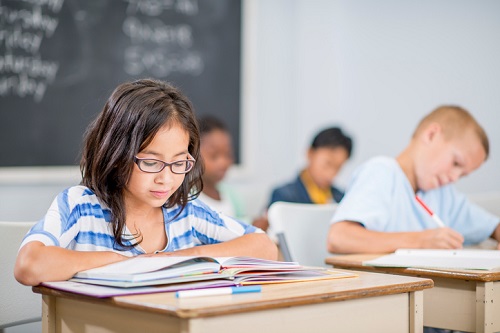
Some have blamed smartphones and other digital devices for a slump in student outcomes, namely in the learning areas of literacy and numeracy.
However, classroom research involving more than 200 primary school students across three low socioeconomic schools has revealed how technology such as smartphones, animation and videos can rapidly increase students’ command of the English language.
Improving literacy has long been a major priority for schools as studies have shown that strong literacy skills are associated with stronger employment opportunities, wages, social participation, health outcomes and longevity.
The latest research, known as the SELFIE (Strengthening Effective Language of Feelings In Education) Project, taught participating primary school students how to express emotional language through the use of digital technology.
Working closely with teachers, principals, and the not-for-profit Big Picture Industries media company, young project participants were taught how to produce their own digital images, as well as posters, animations and films.
Australian Catholic University’s Professor Kathy Mills, who led the research, said the participating Years 4 to 6 students went from using basic and simplistic emotional language to being able to describe emotions in very sophisticated terms.
“Typically we think of books as a way to increase literacy but not all young people are motivated to learn in this way,” Professor Mills said.
“Young people today show emotion by liking a post, or by posting selfies, emojis, gifs, and memes.”
Professor Mills said that using digital technologies as the key, the SELFIE Project unlocked children’s fascination with technology to increase their use and understanding of the English language.
“The ability to express emotions, attitudes and judgements is a large and important grammatical system in language,” she said.
“Ability in these areas is associated with higher academic achievement, well-being and long-term social health. Learning to accurately describe this emotional expression is highly educational for young people.”
Mills added that with the proliferation of fake news and a deluge of information compared to previous generations, students today need critical literacy skills more than ever.
“There are many ways that education can channel young people’s everyday literacy practices with mobile phones and computer games to inspire learning, and to not only play games for learning, but also to learn how to build the games themselves,” she said.


